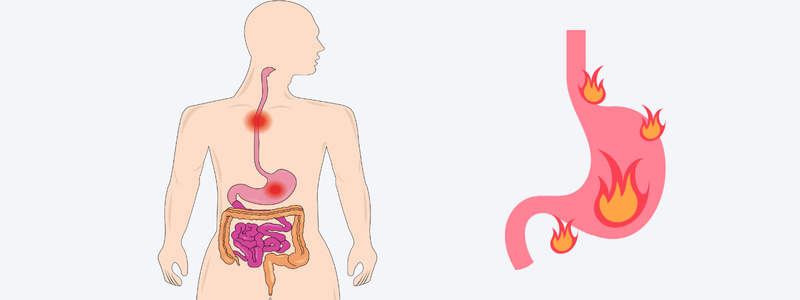
Oesophageal disorders
We provide treatment for the following -
- GERD (Gastroesophageal Reflux Disease)
- Barrett's Esophagus
- Eosinophilic Esophagitis
- Esophageal motility disorders including achalasia cardia
- Esophageal Strictures
- Esophageal Cancers
1. GERD (Gastroesophageal Reflux Disease)
GERD occurs when stomach acid frequently flows back into the oesophagus, irritating its lining. Common symptoms include heartburn, chest pain, regurgitation, and difficulty swallowing. If untreated, GERD can lead to complications such as esophagitis, strictures, or Barrett's esophagus.
Treatment options include:
- Lifestyle and dietary modifications
- Medications to reduce acid production
- Endoscopic therapies
- Surgical interventions such as Nissen fundoplication
2. Barrett's Esophagus
A complication of long-standing GERD, Barrett's Esophagus involves changes in the lining of the oesophagus, which may increase the risk of developing oesophageal cancer. Regular monitoring and early treatment are crucial.
Management strategies include:
- Surveillance endoscopy with biopsies
- Acid suppression therapy
- Endoscopic ablation (e.g., radiofrequency ablation)
- Endoscopic mucosal resection in precancerous cases
3. Eosinophilic Esophagitis (EoE)
This is a chronic, immune-mediated condition characterized by inflammation of the oesophagus, often triggered by food allergens. It can lead to difficulty swallowing, food impaction, and strictures.
Treatment may include:
- Dietary elimination plans
- Topical corticosteroids
- Esophageal dilation for strictures
- Allergy evaluation and immunotherapy
4. Esophageal Motility Disorders (Including Achalasia Cardia)
These disorders affect the movement and coordination of the oesophageal muscles. Achalasia is a specific condition where the lower oesophageal sphincter fails to relax properly, causing difficulty in swallowing.
Diagnostic tools and treatments:
- High-resolution esophageal manometry
- Barium swallow studies
- POEM (Peroral Endoscopic Myotomy)
- Pneumatic dilation or botulinum toxin injection
- Heller myotomy (surgical)
5. Esophageal Strictures
Strictures are abnormal narrowings of the oesophagus, often due to chronic inflammation, injury from acid reflux, radiation, or ingestion of caustic substances. They can cause progressive difficulty in swallowing and require timely treatment.
Treatment may involve:
- Endoscopic dilation
- Stent placement in complex cases
- Treatment of underlying causes such as GERD
6. Esophageal Cancers
Cancer of the oesophagus can arise from the squamous cells or glandular cells (adenocarcinoma) and is often diagnosed at an advanced stage. Early detection significantly improves outcomes.
Comprehensive cancer care includes:
- Endoscopic resection for early-stage disease
- Chemotherapy and radiation therapy
- Surgical esophagectomy
- Palliative care and stenting in advanced cases
- Multidisciplinary tumor board evaluation
